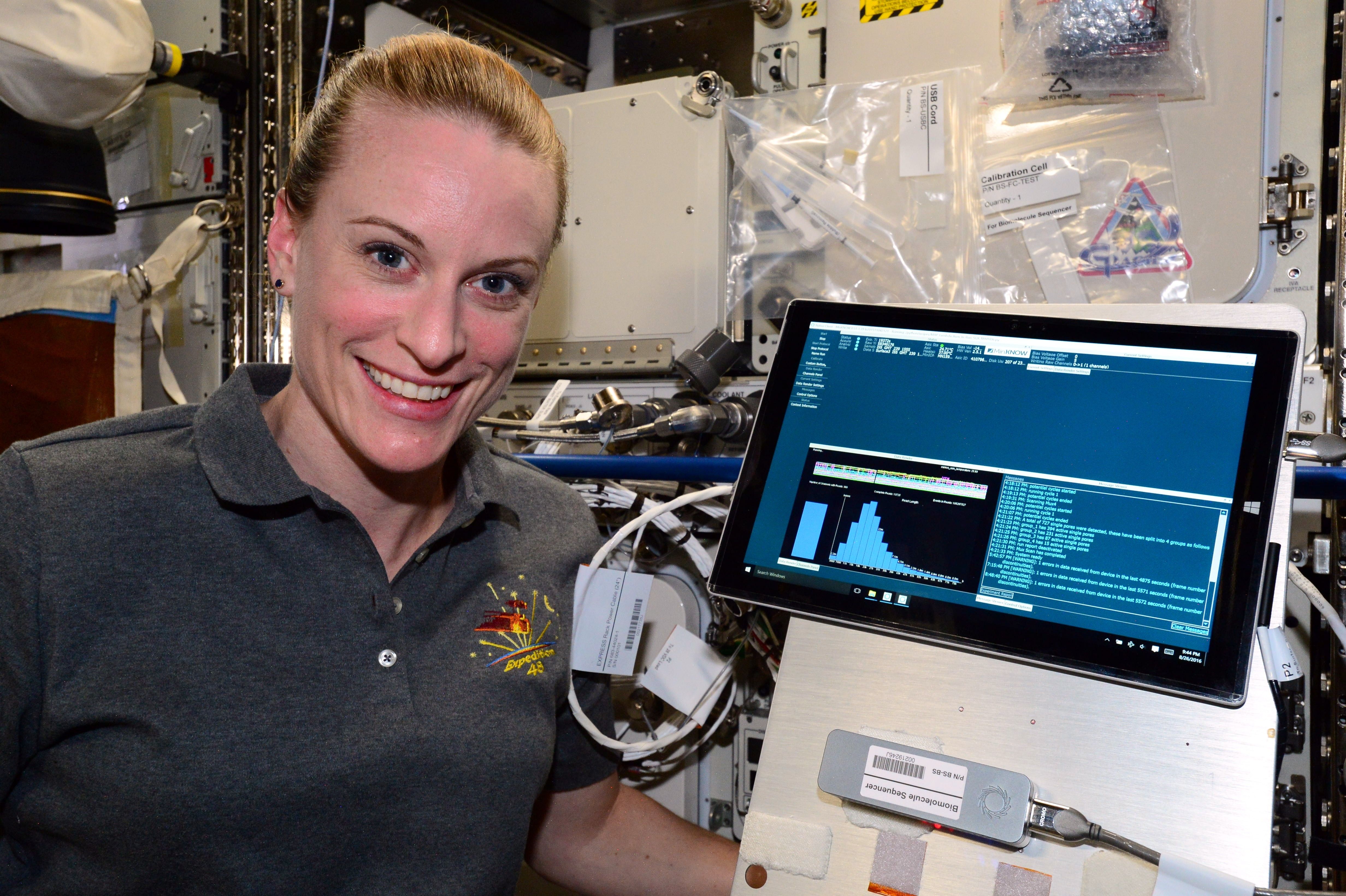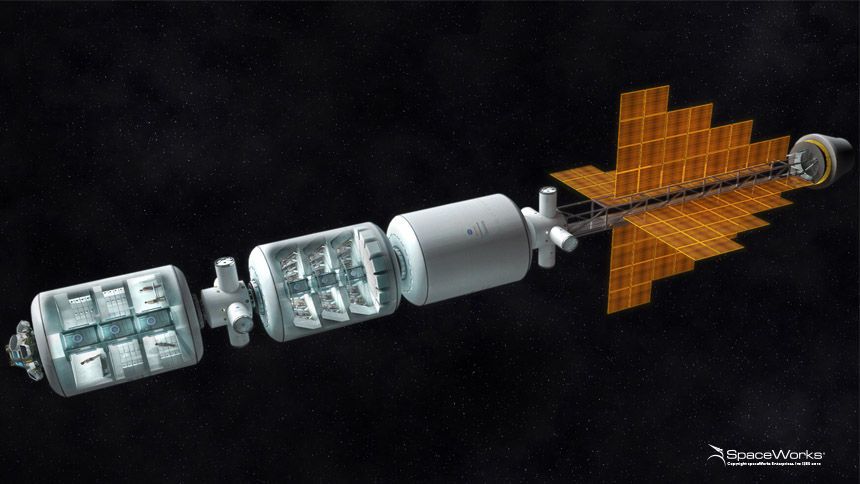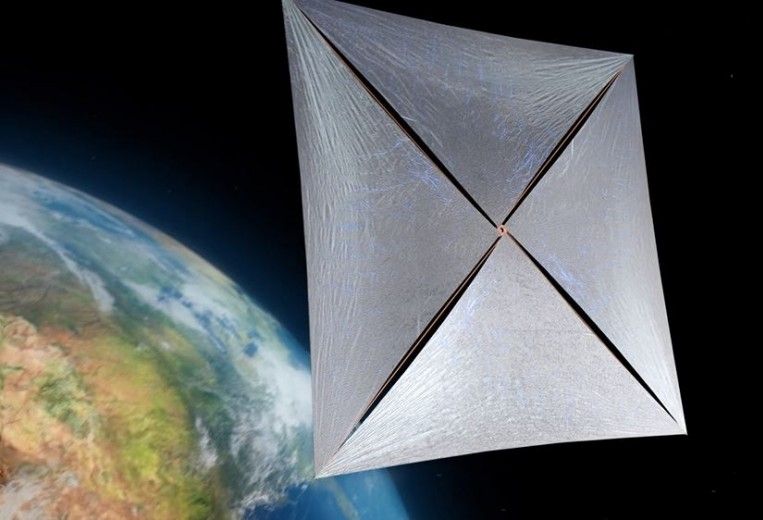Archive for the ‘space travel’ category: Page 469
Sep 1, 2016
Explosion at Cape Canaveral Air Force Station
Posted by Andreas Matt in category: space travel
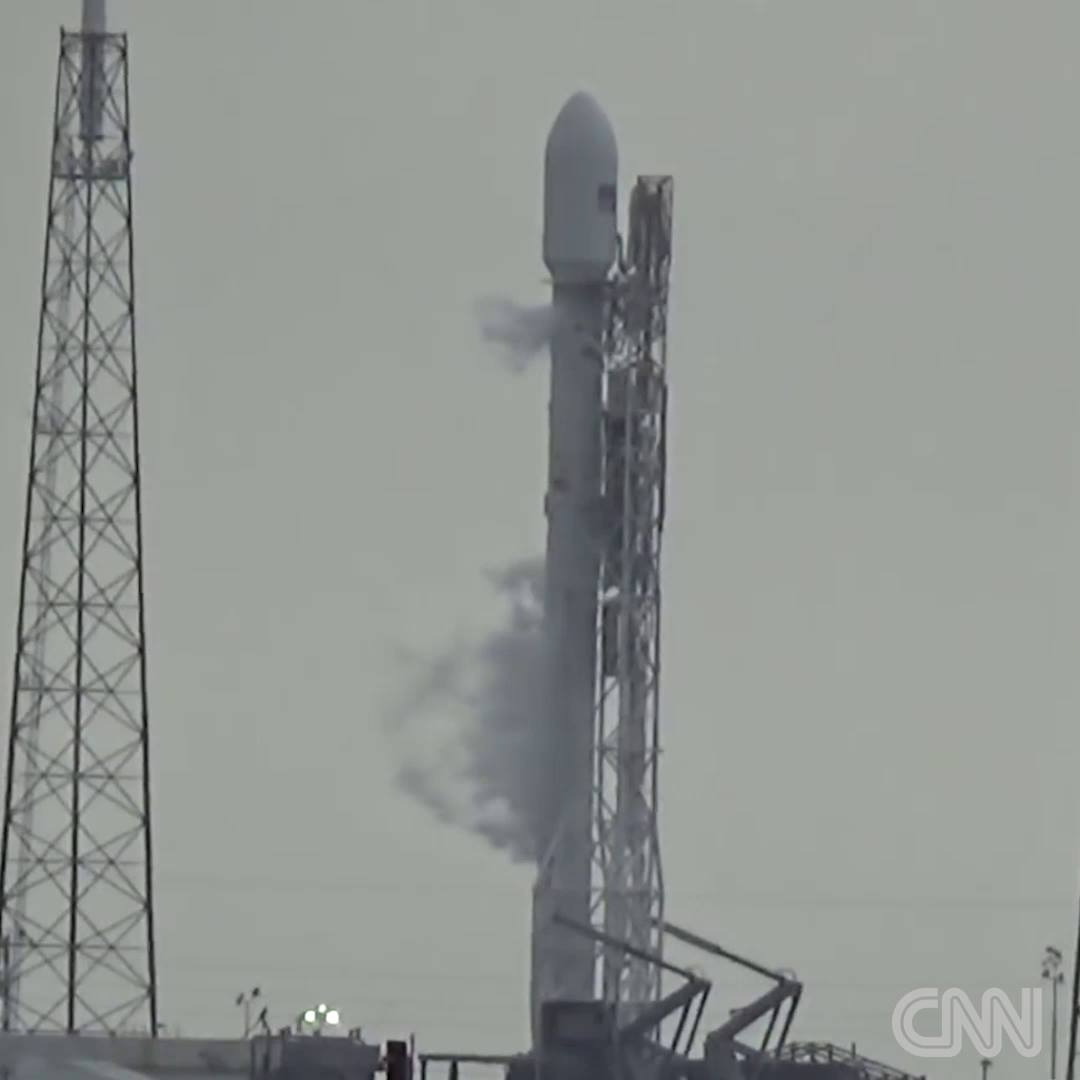
Watch dramatic footage of the SpaceX rocket exploding at its Cape Canaveral launch pad http://cnnmon.ie/2cgE1QY
Sep 1, 2016
Explosion rocks SpaceX launch site in Florida during test
Posted by Dan Kummer in categories: robotics/AI, space travel
Whoops.
CAPE CANAVERAL, Fla. (AP) — An explosion rocked a SpaceX launch site Thursday during a routine rocket test.
SpaceX was conducting a test firing of its unmanned rocket when the blast occurred shortly after 9 a.m., according to NASA. The test was in advance of a planned Saturday launch from Cape Canaveral Air Force Station, which is next to NASA’s Kennedy Space Center.
Continue reading “Explosion rocks SpaceX launch site in Florida during test” »
Aug 31, 2016
Prospecting for Asteroid Resources — Deep Space Industries
Posted by Klaus Baldauf in categories: robotics/AI, space travel
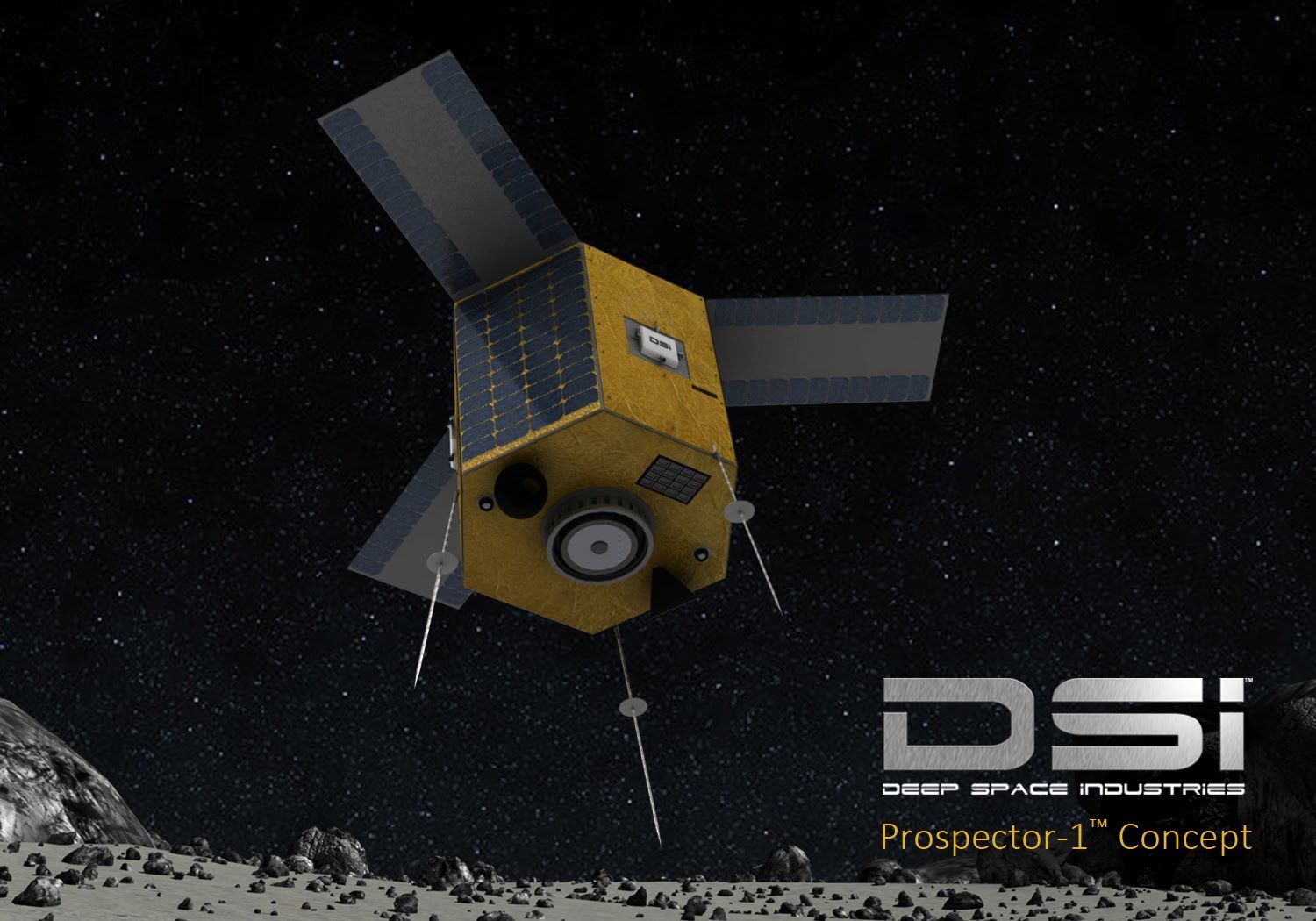
https://www.youtube.com/watch?v=J0vkqQN44I4&feature=youtu.be
http://deepspaceindustries.com/prospector-1/
Prospector-1, the world’s first commercial interplanetary mining mission, will fly to and rendezvous with a near-Earth asteroid to determine its value as a source of space resources.
Continue reading “Prospecting for Asteroid Resources — Deep Space Industries” »
Aug 30, 2016
First DNA Sequencing in Space a Game Changer
Posted by Klaus Baldauf in categories: biotech/medical, space travel
For the first time ever, DNA was successfully sequenced in microgravity as part of the Biomolecule Sequencer experiment performed by NASA astronaut Kate Rubins this weekend aboard the International Space Station. The ability to sequence the DNA of living organisms in space opens a whole new world of scientific and medical possibilities. Scientists consider it a game changer.
DNA, or deoxyribonucleic acid, contains the instructions each cell in an organism on Earth needs to live. These instructions are represented by the letters A, G, C and T, which stand for the four chemical bases of DNA, adenine, guanine, cytosine, and thymine. Both the number and arrangement of these bases differ among organisms, so their order, or sequence, can be used to identify a specific organism.
The Biomolecule Sequencer investigation moved us closer to this ability to sequence DNA in space by demonstrating, for the first time, that DNA sequencing is possible in an orbiting spacecraft.
Continue reading “First DNA Sequencing in Space a Game Changer” »
Aug 30, 2016
‘Hibernating’ Astronauts May Be Key to Mars Colonization
Posted by Klaus Baldauf in categories: innovation, space travel
Colonizing Mars may require humanity to tap into its inner bear.
Researchers are working on ways to induce a hibernation-like torpor state in astronauts — a breakthrough they say would slash costs and make the long journey to the Red Planet safer and far less taxing for crewmembers.
Such benefits could help lay the foundation for the first footsteps on Mars, and they’re essential to the establishment of a long-term human outpost there, project team members said. [Red Planet or Bust: 5 Crewed Mars Mission Ideas].
Continue reading “‘Hibernating’ Astronauts May Be Key to Mars Colonization” »
Aug 28, 2016
Meet “Solar Express” That can Take- Humans to Mars in presently 37 Hours
Posted by Andreas Matt in categories: futurism, space travel
Interesting…
Earlier this year, Charles Bombardier dreamt up a way to tour between continents at hypersonic speed (think New York to Dubai in 22 minutes). However now he’s set his sights on something much larger. Pushing the limits of his mind out of this world, the Montreal-based leader has envisioned Solar Express—a futuristic train intended to ferry goods and passengers between celestial bodies and space station.
Aug 27, 2016
This russian billionaire has a plan to explore Proxima b, our closest Earth-like planet
Posted by Klaus Baldauf in categories: innovation, space travel
Back in April, Russian billionaire Yuri Milner pledged US$100 million toward a crazy plan to visit another star system.
The mission — Breakthrough Starshot — aims to get this done by propelling teeny, tiny spaceships to 20 percent the speed of light with powerful lasers.
Milner and famed physicist Stephen Hawking initially said their destination would be Alpha Centauri: a star system located some 4.37 light-years (25.7 trillion miles) away from Earth.
Aug 27, 2016
SpaceX’s biggest rival is developing “space trucks” to ferry cargo in an orbital economy
Posted by Klaus Baldauf in categories: business, economics, Elon Musk, military, space travel
The big kahuna of American rocket companies is the United Launch Alliance, a joint venture of Boeing and Lockheed Martin that until this year held a monopoly on the lucrative business of launching rockets for the US Air Force.
But that monopoly is no more. The company faces a new era of competition as Elon Musk’s maturing SpaceX aims to fly more space missions in one year than ULA does, and as Jeff Bezos’ Blue Origin breaks ground on a new factory for orbital rockets.
ULA, for its part, isn’t sitting still. “I came here to transform the company, position it in this new competitive marketplace with all these different players,” says Tony Bruno, who took the CEO job at ULA in August 2014 after a three-decade career in Lockheed’s missile-defense business. In his first full year in charge, ULA returned more than $400 million in operating profits to its two owners, but the company must prepare for when its final no-bid launch contract expires in 2019.
Aug 25, 2016
First test of Breakthrough Starshot interstellar probe highlights likely damage due to gas and dust
Posted by Andreas Matt in categories: particle physics, space travel
(Phys.org)—A small team of researchers at Harvard University who are part of the Breakthrough Starshot team has been testing the likely damage to an interstellar spacecraft traveling at approximately one-fifth the speed of light as it makes its way to the Alpha Centauri star system. As they note in a paper describing their testing and results, which was uploaded to the arXiv preprint server, such damage could be catastrophic, but they believe they have a solution.
Earlier this year, Russian billionaire Yuri Milner announced to the world that he wants to send a probe to the Alpha Centauri star system—he put up $100 million of his own money to get the ball rolling on what is expected to be a multi-billion-dollar effort. At the time of the announcement, Milner told the press that his team of advisors had identified 20 main challenges that would have to be overcome in order for such a mission to be a success. In this new effort, the researchers have addressed one of those challenges—assessing the likely damage to the craft due to space dust and gases, and offering solutions to the problem.
The preliminary working design of a space probe able to travel at ∼0.2c is little more than a circuit board that has come to be known as a wafersat—it would be attached to a light sail that would be the target of a laser sent from Earth to push it during the initial part of the journey. The wavsat would be made mostly of graphite and quartz. Thus, the researchers focused the bulk of their testing on these two materials. They discovered that particles of space dust hit by the craft would mostly come in the form of collections of heavy atoms rather than particles—those collisions would cause two problems. The first would be the creation of pits on the surface of the craft, which would result in loss of material (up to 30 percent of the entire craft might be lost).


